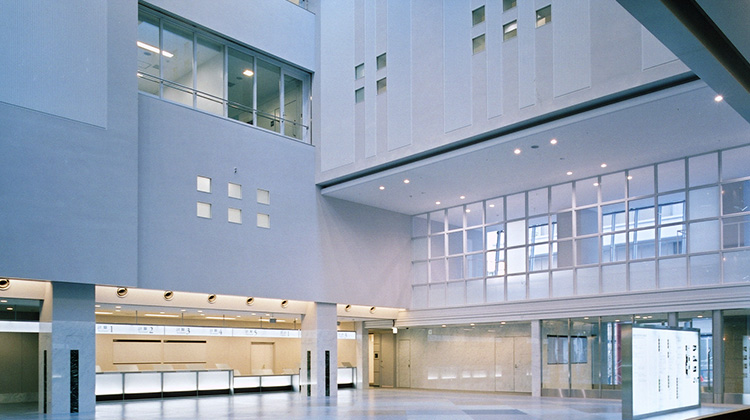Greetings
Japan has become an aging society, and according to the "Study on Future Estimates of the Elderly Population with Dementia in Japan," the prevalence of dementia among people aged 65 and over in 2020 was 16.7%, or approximately 6.02 million people, which means that about one in six people will have dementia, and this number is expected to continue to increase.
Center for Dementia-Related Diseases and Dementia Treatment Departments has been established in medical institutions designated by prefectures and designated cities with the aim of improving the standard of medical care for dementia in each region. Our center was opened in January 2010 as the first certified facility in Kanagawa Prefecture. Currently, four dementia specialists are employed full-time at the center, who provide medical care in collaboration with Department of Neurology, Psychiatry, Neurosurgery, etc., and also work hard to train dementia specialists as a dementia education facility.
Chair of Center for Dementia-Related Diseases and Dementia Treatment Department
Eiichiro Nagata
Overview
The main duties are as follows:
-
Medical consultation: IIn-person and telephone consultations regarding medical care and nursing care for dementia
-
Treatment: Differential diagnosis of dementia and management for complications and behavioral or psychological symptoms
-
Technical assistance: Organizing training session on dementia
-
Medical cooperation conferences: Information exchange with representatives from the prefecture's elderly welfare department, medical associations, community comprehensive center, municipal welfare officers, care facilities and family associations
If you wish to see us, please prepare a medical information form from your primary care physician and make an appointment in advance with Department of Neurology. In particular, our initial outpatient clinics in the Department of Neurology clinic on Tuesday and Wednesdays, is staffed by neurology and dementia specialists. Depending on the day’s schedule, you may experience some waiting time, so please allow sufficient time for your appointment. Information such as the patient's comorbidities, daily behavior, and lifestyle history is important for dementia diagnosis and treatment. In addition, for dementia and its pre-stage (mild cognitive impairment: MCI), the understanding and support of family members and caregivers are crucial for preventing and slowing its progression. When visiting, please bring your medical information form from your primary care physician and your medication record, and be sure to be accompanied by a family member or close friend who knows you well. Depending on the patient's condition, we will coordinate with other necessary departments, such as Psychiatry and Neurosurgery, to provide appropriate treatment.
Our center focuses on the differential diagnosis of dementia, and in addition to evaluating cognitive function, we make differential diagnoses by making full use of imaging diagnostics such as amyloid PET, MRI and SPECT, and we operate as the core facility for dementia medical care in the western region of Kanagawa Prefecture. Furthermore, as we are a general hospital with an Emergency Medical Center, when patients are hospitalized due to physical illnesses that coexist with dementia, our dementia care support team intervenes early and supports patients with dementia so that they can receive hospital treatment safely and comfortably.


